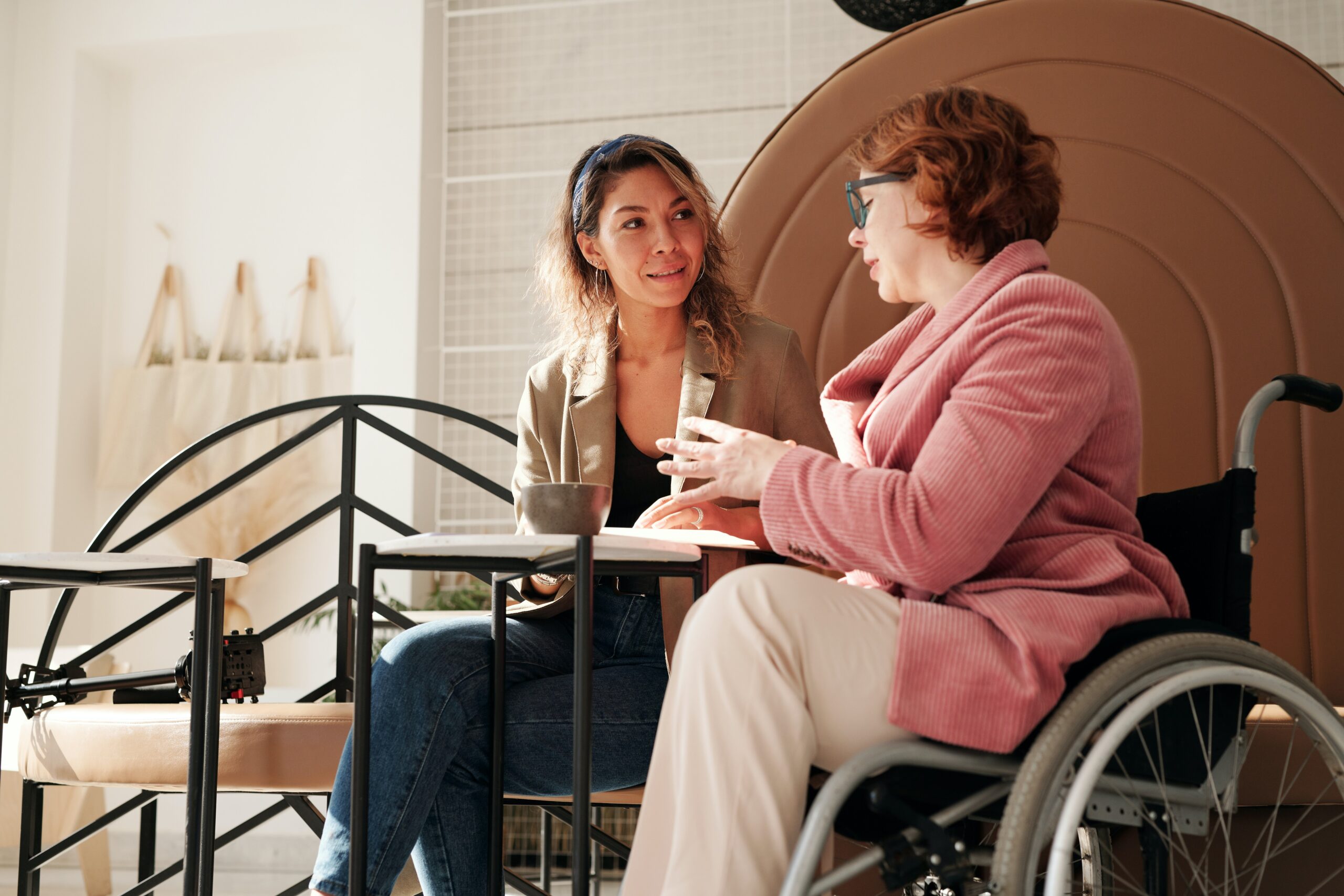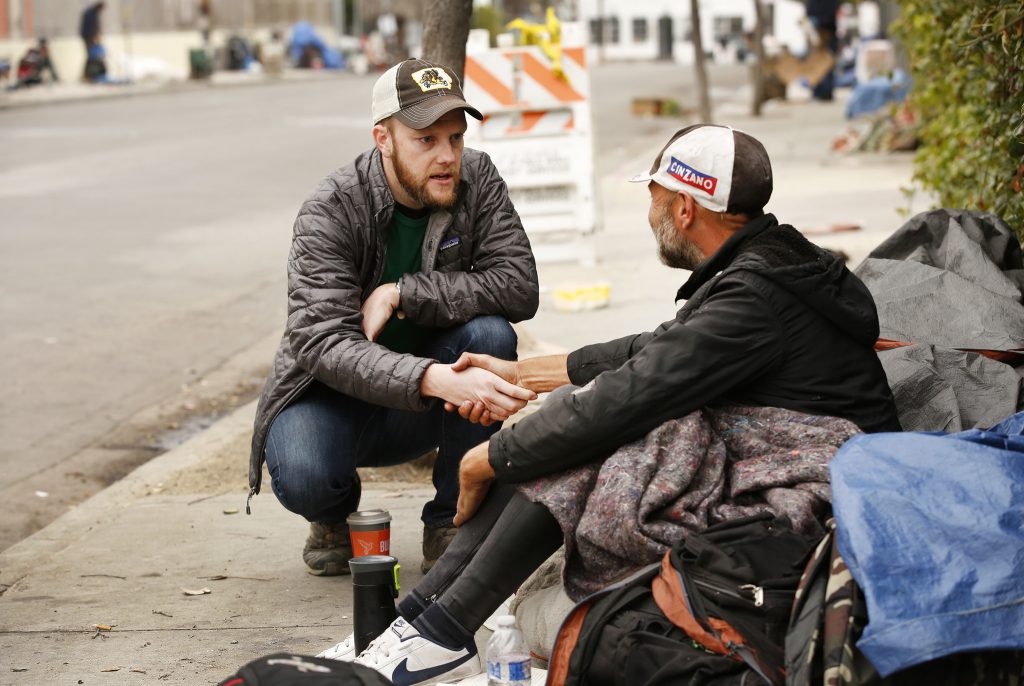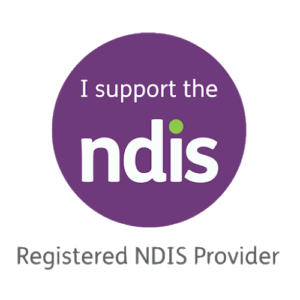Who we support
- NDIS Participants requiring Specialist Support Coordination and OT Functional Capacity Assessment (FCA) – NDIA or Plan Managed
- Clients who have a Public Trustee, Private Trustee or have a claim with the Insurance Commission of Western Australia – Case Management and Medico-Legal Reporting
- People over 16, preferably 18 or older living within Perth metropolitan area
- We require 36 or more hours of coordination annually
- Primary diagnosis of Acquired brain injury, Spinal cord injury, Intellectual disability, Psychosocial disability or neuro-degenerative conditions.
We do not provide ongoing therapies, behaviour support practitioners, accommodation or assistive equipment. We do provide SC Level 2 and SSC Level 3.

Support Coordination
Support Coordination is all about helping you understand the NDIS and your NDIS plan, linking you in with service providers you like, so you can reach your goals! Support Coordination is also about educating you about the NDIS and empowering you to make positive life choices. Your Support Coordinator is your NDIS expert who works with all your service providers and creates the necessary reports when your situation changes, or your NDIS Plan is being reviewed.
Specialist Support Coordination
If your needs are more complex, you’ll receive Level 3: Specialist Support Coordination funding. This coordination is delivered by Coordinators whose qualifications and experience match your needs. Your Coordinator will work with you to support you to reduce and remove as many barriers as possible to allow you to use your NDIS funding and make positive life choices. Your Coordinator will work with all your service providers to create plans so your life can run as smoothly as possible even when a crisis occurs. Just like a Support Coordinator your Specialist Support Coordinator is your NDIS guru who works with all your service providers and creates the necessary reports when your situation changes, or your NDIS Plan is being reviewed.


Case Management
Our Case Managers will support you after your complex injury to access the services, treatments and supports you require to help facilitate transition from hospital to home, both during and after the rehabilitation phase. All our Case Managers are degree qualified health professionals who will work with you and your care team to build your capacity to manage your personal circumstances. We work closely with your funding provider (Insurance Commission of WA, Public Trustee or Private Trustee) to ensure all compliance is met and your needs are reviewed on a regular basis.
Medico Legal reporting & NDIS Functional Capacity Assessments (FCA)
Network Case Management Services has an in house team of skilled Senior Occupational Therapists and a reputation for quality. We comprehensively and holistically assess clients with complex needs and provide detailed reports on their current and future rehabilitation, treatment, and care needs.
You can be assured that our OTs understand the nuances of the NDIS and have 20+ years experience in Allied Health Needs Assessments and Medico-Legal Reports in the following key areas:
- Motor vehicle accidents
- Workers compensation
- Medical negligence
- Family provisions act claims
- Public liability

We are specialists in supporting
Acquired Brain Injury
Acquired brain injury (ABI) refers to any type of brain damage that occurs after birth. It can include damage sustained by infection, disease, lack of oxygen or a blow to the head.
Psychosocial disability
Psychosocial disability (PSD) is a term used to describe disabilities that arise due to mental illnesses. PSD refers to the social consequences of disability and the way that a person’s life is impacted upon due to mental illness. People with PSD may find it challenging to set goals and make plans, engage in education, training and employment and other social and cultural activities.
Intellectual disability
Intellectual disability is a lifelong condition that affects a person’s intellectual skills and their behaviour in different situations. A person can be born with an intellectual disability or acquire it before age 18.
Some of the most common causes of intellectual disability include:
- Down Syndrome
- Fragile X Syndrome
- Prader – Willi Syndrome
- Rett Syndrome
- Foetal alcohol spectrum disorder
- Premature birth
- Childhood brain injury
Spinal Cord Injury
A spinal cord injury is damage to the spinal cord that causes loss of function, feeling and mobility. Spinal cord injuries are most commonly caused by trauma including motor vehicle accidents, falls, sports-related injury and acts of violence.
Spinal cord injuries may result in paralysis including quadriplegia (a loss of function below the neck) and paraplegia (a loss of function below the chest).
Our Rates
As a registered NDIS Provider we charge the NDIS Price Guide rates.
Level 2: Coordination of Supports
| Item number | Support item | Unit | Rate |
| 07_002_0106_8_3 | Support Coordination Level 2: Coordination of Supports | Hour | $100.14 |
Level 3: Specialist Support Coordination
| Item number | Support item | Unit | Rate |
| 07_004_0132_8_3 | Support Coordination Level 3: Specialist Support Coordination | Hour | $190.54 |
Level 2: Coordination of Supports
| Item number | 07_002_0106_8_3 |
|---|---|
| Support item | Support Coordination Level 2: Coordination of Supports |
| Unit | Hour |
| Rate | $100.14 |
Level 3: Specialist Support Coordination
| Item number | 07_004_0132_8_3 |
|---|---|
| Support item | Support Coordination Level 3: Specialist Support Coordination |
| Unit | Hour |
| Rate | $190.54 |



